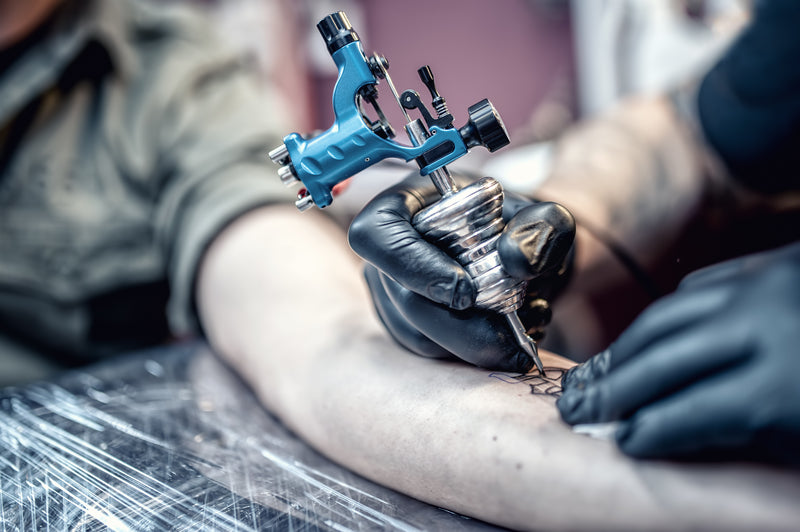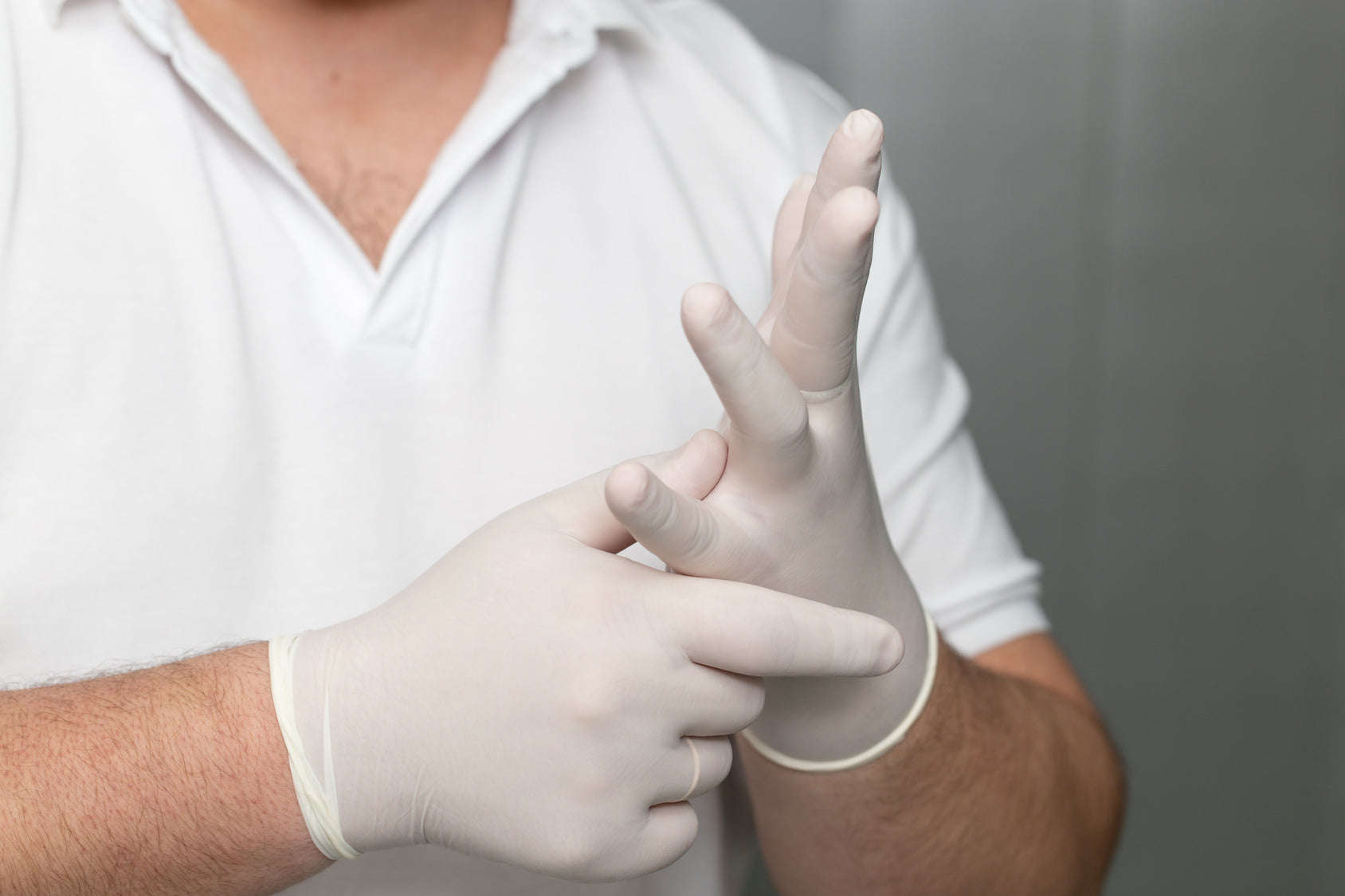
How can you ensure your safety while performing your job?
Some fields of work require higher safety regulations. Many fields of work such as medical, industrial, food industry, tattoo shops, and several others rely on disposable gloves for safety.
The type of gloves required depends on the type of work that you do. To ensure you use the glove that's right for your line of work, we put together 7 tips.
Let us break down the materials and uses for each type of disposable gloves.
1. Powdered vs. Unpowdered Gloves
Medical professionals prefer either powdered or unpowdered gloves. It often depends on the level of lubrication they desire.
Powdered gloves are used because the powder acts as a type of lubricant. They are easier to put on and take off.
The powder used is not known to cause allergies. They're powdered with cornstarch, which is a non-irritant.
The only warning against these gloves is that they can stop the healing process if those wearing them have an open wound. It gets into the open tissues and slows down healing.
In newer gloves, the cornstarch inner coating is being replaced by a special inner coating that won't stop healing.
However since January 19th, 2017 the United States FDA has banned powered gloves for surgical and medical examination use over concerns of potential airway and wound inflamations some patients experienced.
2. Sterile vs Non-Sterile
Surgeons usually use sterile gloves because they meet FDA quality standards. The FDA has a standard assurance level all sterilized gloves must meet.
When the standards are met, there is a one in a million chance the gloves are non-sterile. Even the most resistant of microorganisms don't survive the sterilization process when it's performed correctly.
As a general rule, sterile gloves are mostly used to perform surgical procedures. The quality is higher, therefore the gloves are more expensive.
Sterile gloves are single packaged to prevent contamination, while non-sterile are packaged in bulk.
Non-sterile gloves are used by other medical professionals to perform simple out-patient procedures. These employees don't require the same level of sterilization since they don't perform surgeries.
The main purpose of non-sterile gloves is to protect the medical professional from coming into contact with bodily fluids. Although medical professionals practice safe hygiene, gloves also protect the patient from coming into contact with the caregiver.
3. Exam Rooms: Latex Gloves
Latex gloves are better suited for working with water-based and biological materials. They don't work that well with chemicals or solvents.
They are the most affordable of all the disposable type of gloves available. It makes them the most common gloves for exam rooms since they are often sold in bulk.
Surgeons trust latex gloves due to their biological material resistance.
It's important to note some people suffer from latex allergies, so there should always be another glove alternative besides latex. The allergic reaction might cause a skin rash.
If you're mostly going to use latex gloves, make sure your staff or patients are not allergic.
Latex gloves should also be used properly to prevent tears and contamination.
Correct Fit
When gloves don't fit properly, you run the risk of injury and contamination.
If the glove is too small, it causes overstretching and tears can happen, especially in the space between your thumb and palm. These tears can be dangerous to the patient and caregiver. A too-tight fit also reduces hand mobility and flexibility.
A glove that is too big can reduce dexterity when performing procedures. Your grip is also reduced if the glove is ill-fitting.
Properly Putting Them On
How you put them on is as important as the fit. You should only put them on with clean hands and ensure they're completely dry before you do. Otherwise, the water could transfer contaminants.
Never place the gloves on a dirty surface before putting them on, nor touch the outside of the glove. Make sure you remove all rings and watches.
Removing Them
Remember not to touch the outside of the glove with your ungloved hands. You could come in contact with body fluids or other unwanted substances.
4. Janitorial Work: Vinyl Gloves
Vinyl gloves are usually economical and available for work that requires multiple changes. You can get vinyl gloves in powder-free versions.
Since their disposable use is so common, people from the food industry use them often. They're not equipped to perform heavy or hazardous tasks.
Janitorial teams often use them when light, non-hazardous cleaning is required. The gloves aren't resistant to harsh chemicals or bodily fluids.
5. Food Industry: Nitrile Gloves
Nitrile gloves are a suitable option for medical professionals to use for examinations. They are also used for laboratory research and food prep because of their strong resistance to oils and acids.
They are available in reusable and disposable versions. This type of gloves is strong and puncture resistant, but they offer limited flexibility. Their lack of flexibility means professionals should use them with care.
6. Laboratory Research: PVC Gloves
PVC gloves are resistant against alcohol, bases, and acids. However, this type of gloves is prone to punctures and cuts.
They are often used by researchers at laboratories, or other medical settings that don't require the use of sharp objects or machinery.
This material is detergent resistant, which makes it a great choice for cleaning professionals.
7. Industrial Industry: Neoprene Gloves
These are also called chloroprene gloves and they are used due to their comfortable feel. The inside of the gloves is lined with a brushed interior. Users can wear them for hours with minimal discomfort.
Neoprene gloves have a strong chemical resistance, which is why they're used for a variety of tasks.
The strong chemical resistance makes it work well for people who work in laboratories with potentially harmful substances. They can protect the skin from infectious body fluids. Neoprene's strong and durable material makes them ideal for janitorial work.
Almost all of the neoprene gloves are not disposable which is why their use is limited for certain medical applications. Their use is not recommended for handling food and beverages.
Which Type of Gloves Do You Prefer?
There are many glove options for any type of job. Picking the right one is about preference and proper material selection.
Visit the My Glove Depot website store to browse our large inventory of gloves.
We have the right type of disposable gloves for the job, no matter what you're working on!





